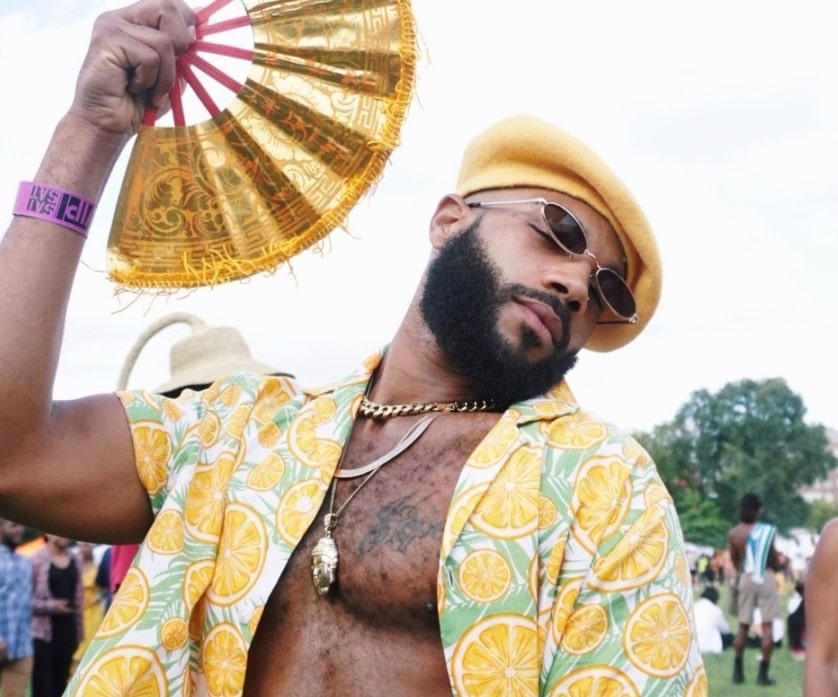Written by Daniel Nkado.

While growing up, a few blocks away from my house lived a young, thin boy – brown-skinned and lithe. Lithe in the way a beautiful young woman might be.
His name was Kosisochukwu – a unisex Igbo name that means “As it pleases God.” As a sign of familiarity, many who knew him well called him “Kosi” for short.
But the name he was most often called was nothing close to his given name. People called him “Omeka Nwanyi” – an Igbo phrase meaning “the one that behaves like a woman.” Even strangers who did not know him would call him this when they made his acquaintance.
He often wore makeup and swayed his hips when he walked. I remember he had very expressive fingers too, which he moved here and there as he talked. He also preferred to wear outfits that hugged him tightly and, on some days, he would draw the edges of his shirt together and tie a knot above his stomach, leaving his navel exposed.
Men and women loved this boy’s manner of doing things. Myself included.
The phrase omeka nwanyi is an Igbo term for an effeminate man.
It was nothing derogatory at all. In fact, at that time, effeminacy in boys – or “behaving like a woman” – was somewhat admired. Being an omeka nwanyi meant you were calm, gentle, trouble-free, kind, dutiful at home, obedient and harmless – all in pleasing contrast to the brute nature of some other boys. An omeka nwanyi was the kind of son parents wanted to have, or the kind of son parents thanked God they had.
It was also no problem then for women to marry effeminate men. In fact, many preferred it. The omeka nwanyi was seen as a kind, hardworking, respectful and, most importantly, non-violent husband. If an effeminate man ever beat his wife (which people believed rarely happened), it was assumed it must have been the woman’s fault.
That was the widely held opinion then, so it was common in those days to hear mothers advising their daughters: “Look at him, he can barely hurt a fly. Ezigbo di—a good husband. He will take very good care of you.”
But all that has changed now.
Today, effeminacy is directly linked to homosexuality – the last thing many Nigerians would want to be associated with. Anything linked to homosexuality is taboo here and is avoided.
People are now more likely to call an effeminate boy they come across “Homo” instead of “Omalicha”, “Omeka Nwanyi” or “Nwoke na mma” – or any of those fond names people once used.
Back then, it seemed that no one cared – some people just behaved differently, and there was nothing more to it. What you don’t know can’t hurt you, I guess.
Many Igbo proverbs and wise sayings, in fact, emphasise embracing difference.
But today, even as the world claims to have become more aware of “LGBT rights”, the knowledge has not necessarily translated into more tolerance – at least not over here.
In most parts of Nigeria today, effeminacy is seen as the proud display of homosexual behaviour – like the audacious flaunting of sin. Effeminate men are often victims of violence and hate attacks.
It is not accurate to say all effeminate men are gay. Sexual orientation goes beyond demeanour, and there are gay men more macho than your average straight man. To tag someone a homosexual just from the way they behave, or to say something like “(s)he sounds or acts gay”, reinforces the faulty idea that appearance is directly related to sexual orientation.
There are obviously effeminate men who are completely straight. Moreover, the perception of effeminate behaviour is subjective. Society plays a role in how masculine and feminine traits are judged. Some people may classify normal male behaviour that is simply uncommon in their immediate surroundings as effeminacy.
But most importantly, even if they are gay, everyone has the right to live and be respected – just like anyone else. Whoever they are.
Daniel Nkado is a Nigerian writer and the founder of DNBStories.com. Get his books on DNB Store, OkadaBooks or BamBooks!


